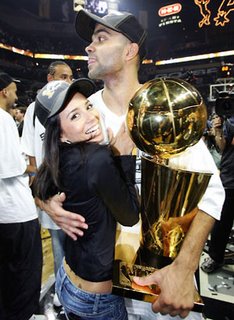There's been a lot of political interest in France currently with their upcoming presidental elections in April 2007. And although the political system has distinct differences with our U.S. system (e.g., in France there is a bewildering array of alliances and coalitions which are necessary to establish a long-term government), as best as I can tell the decision as to who gets to be president usually comes down to two distinct candidates, much the same as our "two-party" Democrat-Republican system.
So: the two main parties--one from the right (the "UMP", currently in power with Jacques Chirac serving the 2nd of two terms as Prez) and one from the left (the Socialists being the main party) are in the process of officially determining who the main candidates will be--a process which is similar in a sense to the primary elections in the U.S., in which only party members are allowed to participate. Although these elections have yet to take place, I can already tell you with fair certainty that the race will come down to two candidates: Nicolas Sarkozy (on the right) and
Segolene Royal (on the left).

Sarkozy is currently the Minister of the Interior as part of the Chirac government. He is the son of Hungarian immigrants and has recently returned from a trip to the United States to meet with George Bush, a move which was widely publicized here in France and indicated generally pro-American stance. As in the United States, the political parties on the right tend to be supported primarily by business and corporations.
If elected, Royal would be the 1st female president in French history; she is currently president of the region Poitu-Charentes and is partners with Francois Hollande, another pr
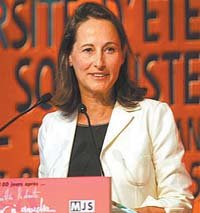
ominent politician in the Socialist Party (I say "partners" because they are not in fact married...they have four children together and are bound together by the "PACS", kind of like the "civil union" of France). Interestingly, the French have only had one president from the left, Francois Mitterand in the 80s; all the others have been from the right. And in general, universities and the "intellectual elite" are more likely to support the more liberal left, although it seems to me that there is often a division of opinion within the left which sometimes prevents them from acting as a unified party.
A recent scary development in the whole French political system has been the rise to power of
Jean-Marie Le Pen, a political leader on the far right whose ideas have found favor with those seeking to blame immigration, especially from Northern Africa, on the financial woes of the French economy. In fact, in 2002 Le Pen's political party received slightly more votes than the left party, nearly 17%! Hopefully 2007 will not continue this disturbing trend.
 Happy Halloween, everybody. I'm definitely missing it this year; although most people know what it is in France, most people don't even realize that it's today, and nobody celebrates it really. You have to admit, it's one of the best possible holidays a kid could ever dream of: getting to dress up in a costume of your choice, followed by everybody giving you candy. If you're American and reading this: eat some candy corns for me!
Happy Halloween, everybody. I'm definitely missing it this year; although most people know what it is in France, most people don't even realize that it's today, and nobody celebrates it really. You have to admit, it's one of the best possible holidays a kid could ever dream of: getting to dress up in a costume of your choice, followed by everybody giving you candy. If you're American and reading this: eat some candy corns for me!




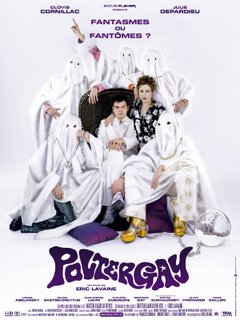
 Our last day in Ireland, after spending a delightful stay at the bed & breakfast The
Our last day in Ireland, after spending a delightful stay at the bed & breakfast The 
 And there you have our mini-holiday in Ireland! I'd definitely consider going back again in the future, especially to do some more exploring along the many hiking trails.
And there you have our mini-holiday in Ireland! I'd definitely consider going back again in the future, especially to do some more exploring along the many hiking trails.


 After picking up our Europcar rental (which sadly, through no fault of our own, turned out to be a minivan) we drove about 2 hours south of Dublin to the Wicklow Mountains National Park. Interestingly, the place where we went was close by to where the bulk of "Bravehart" was shot (yeah, I know...Bravehart was in SCOTLAND, not IRELAND, but the landscape is not altogether different). Our first stop was in Glendaloch, the site of an old (build in the 6th century) monastic community. You can see some of the ruins off in the distance in the pic.
After picking up our Europcar rental (which sadly, through no fault of our own, turned out to be a minivan) we drove about 2 hours south of Dublin to the Wicklow Mountains National Park. Interestingly, the place where we went was close by to where the bulk of "Bravehart" was shot (yeah, I know...Bravehart was in SCOTLAND, not IRELAND, but the landscape is not altogether different). Our first stop was in Glendaloch, the site of an old (build in the 6th century) monastic community. You can see some of the ruins off in the distance in the pic.
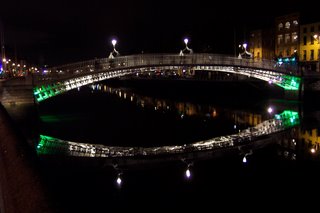
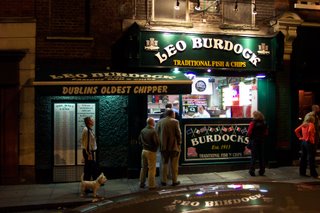 More to follow!
More to follow!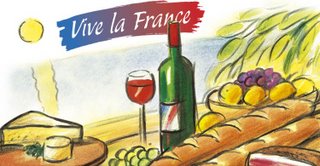


 Finger-like red ivy projections along an old wall in Yevres.
Finger-like red ivy projections along an old wall in Yevres.  Claire climbing a rocky path at Fontainebleau.
Claire climbing a rocky path at Fontainebleau. Claire and Laure having their picture taken by a beet farm. That's right, I said BEETS. If you guessed that pile of non-descript objects in the first picture was beets, give yourself a gold star! I definitely saw more beets piled up by the side of the road in the past 12 hours than in all of my life combined.
Claire and Laure having their picture taken by a beet farm. That's right, I said BEETS. If you guessed that pile of non-descript objects in the first picture was beets, give yourself a gold star! I definitely saw more beets piled up by the side of the road in the past 12 hours than in all of my life combined. 







